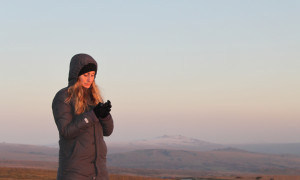Capture the Rapture
Capture the Rapture explores initiatives to capture and represent audience mood, evaluation and impact through a series of technological intervention based around i-DAT’s Social Operating System (S-OS.org). The development of ‘techno-ethnographic’ techniques has a particular focus on the NESTA funded Qualia Project developed through a collaboration with Cheltenham Festivals, the University of Warwick, App development company Elixel, artist Nathan Gale and i-DAT.
However, the real agenda for the paper is an exploration of the desire to enable a distributed empathy with audiences through dynamic feedback. Drawing on the author’s curatorial and production experience the paper reflects on a number of initiatives to measure the impact of cultural events, whether through traditional questionnaires, economic impact reports or audience participation. It explores the preoccupation of contemporary cultural organisations with measuring experience through disconnected evaluation techniques and considers how ‘great art for everyone’ might one day be constructed through simple algorithms, essentially calculating ‘quality’ by measuring ‘quantity’. They suggest that happiness lies somewhere at the end of a bell curve and that true love can be found in a slice of a pie chart.
Birgitte Aga [B] is a i-DAT’s Creative Director and specialises in R&D across creative media, data and other experimental and playful technologies. Her focus is on the evolution and convergence of prototyping and real-time data and the influence of such processual, dynamic, participatory and responsive aspects on contemporary arts/culture. Central in her work is the belief that one must embrace the opportunities created by digital technologies to be open and collaborative in order to sustainably co-create. B co-founded Submerge, a talent and innovation agency for the creative industries and has, since 1998, produced a range of playful and experimental cultural probes/prototypes, interventions, festivals and exhibitions. She has delivered research and produced for a range of organisations such as the Arts Council England, Creative & Cultural Skills, Futurelab, Pervasive Media Lab, the Real Ideas Organisation and Lottolab.
